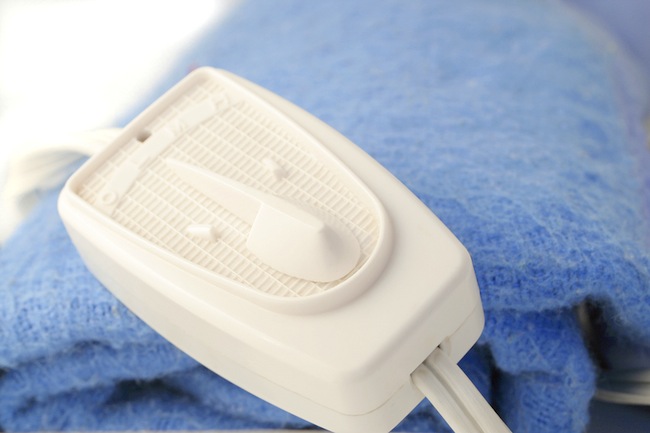- Make It Yourself Lavender Heart-Shaped Bath Bombs!
- 20 Things You Never Knew About “Down There”
- 12 Best Foods For Those Suffering From Arthritis Pain
- 12 Personal Hygiene Mistakes Almost Everyone Makes (Mom Never Told You About #4!)
- 15 Medicinal Plants And Herbs From The Cherokee People
- 12 Mind-Blowing Benefits Of Drinking Coconut Water During Pregnancy
- 12 Outstanding Winter Foods That Won’t Fatten You Up Like A Christmas Turkey
10 Reasons Why You Always Feel So Darn Cold!

Photo credit: bigstock.com
Are you one of those people? You know the kind: they sleep under 5 comforters and have flannel sheets in winter, and sleep with 3 comforters in the middle of summer. They carry a sweater with them even on the hottest days, in case someone turns on the air conditioner. Everyone else in a room can be wearing short sleeves, and they are wearing their coat, clutching a cup of hot coffee to warm up their hands.
We all know people like this (perhaps you are one of them) but what makes them feel cold, even when the room is 70 degrees? Of course, there are numerous answers for this, and we will take a look at them.
Our body works in numerous ways to regulate its temperature. In fact, even when you are sitting perfectly still, your muscles produce about 25 percent of your body’s temperature. This would explain why the more muscle you have, the warmer you feel. More muscle equals more body heat. Your internal organs are also another major source of heat. Since they are continually working, they create heat. In fact, your liver makes up another 20 percent or so of your body heat.
All of this temperature regulation is being directed by your brain. One of the most important thermostats your body has is the hypothalamus, located at the base of the brain. When you feel hot, they hypothalamus opens up the blood vessels close the skin to release heat and you start sweating. When you feel cold, it constricts the blood vessels to conserve heat, making your nose, hands, and toes feel extremely cold.
There are plenty of reasons why, so let’s take a look at them and maybe you can identify which one fits you.
1. Anemia
When you are anemic, you do not have enough red blood cells. Sometimes this is due to a lack of iron in the diet, but there are plenty of other reasons. If you have pale skin, feel weak, dizzy, or sometimes feel short of breath in addition to feeling cold most of the time, your doctor can do a simple blood test, which will tell him whether you are anemic.
2. Your Happiness is Like Climate Control
File this under ‘strange but true.’ Even when the temperature is normal, some people will feel cold based on their emotional state. People who are grieving, or those who are feeling alone, depressed, isolated, or feeling stuck in an unpleasant situation can feel perpetually cold. You know that old saying “Cold hands, warm heart”? Perhaps it should read “Cold hands, cold heart.” When we are feeling emotionally cold inside, it translates to the outside as well.
YOU MIGHT ALSO LIKE: 14 Things to Get Rid of If you Want to be Happy
3. You Can be Too Thin
That old saying, that you can never be too rich or too thin? Well, the last part is definitely not true! Think of the body fat as a blanket around your body. The less fat you have as a cover, the less protection you will have from cold. The thinner you are, the quicker your body will lose heat. Those who have low muscle mass also tend to feel colder because their muscles offer more protection from the cold than fat does. This is one reason why many elderly people always feel cold, as we lose muscle mass as we grow older.
Continue to Page 2

Photo credit: bigstock.com
4. Raynaud’s Disease
This uncommon disease causes your fingers and toes to literally turn blue in response to emotional stress or cold. If your fingers feel numb or even painful when the blood returns, throbbing and tingling, then you might want to see a rheumatologist, as some of these cases develop into arthritis. This is a very rare condition that affects mainly women, but it can affect men as well.
5. Certain Medications
There are some prescription medications that can leave you cold, literally. Beta blockers, for example, which are used to treat heart problems, can make you very sensitive to cooler temperatures. In fact, constantly cold feet and hands are the most common side effect of these types of drugs. If you are on beta blockers, or if you think your medication might be to blame for your feeling cold, talk to your doctor.
6. Stress and/or Anxiety
Right up there with the happiness factor, feelings of stress and anxiety can manifest itself in all sorts of physical ways, including sensitivity to cold. When you are feeling anxious, it can really leave you feeling cold because you become more sensitive to all physical sensations, which can cause your body to begin to panic about feeling cold as well. It’s a terrible catch 22 situation. Finding ways to relieve your stress and anxiety might go a long way towards making you feel more comfortable in your own skin. See a therapist if you need to.
7. Hypothalamus Dysfunction
As we discussed earlier in the article, your hypothalamus is your body’s climate control system. When it goes haywire, it’s as if your internal thermostat is stuck on 55, so you will feel cold all the time. The dysfunction of this important gland can be caused by any number of issues, from head trauma to anorexia, but for the most part it is treatable. See your doctor if you feel cold no matter what you do.
Continue to Page 3

Photo credit: bigstock.com
8. Fungal Infections
This is another one that, at first, doesn’t seem to make sense. How could a fungal infection make you feel cold? Well, when we are talking about candida, the most common type of fungal infection that is the cause of thrush, toenail infection, and vaginal infections, it somehow also affects the hypothalamus, which will leave you feeling plenty cold.
9. Hypothyroidism
An under active thyroid gland, commonly referred to as hypothyroidism, is a common culprit of feeling cold constantly. Your doctor can test your thyroid function with nothing more than a simple blood test.
SEE ALSO: Why Health Eating Does Not Always Get You What You Want
10. Diabetes
Some persons with diabetes seem to feel constantly cold. Doctors don’t understand why some diabetics feel this way and others don’t, but it could be due to diabetic nephropathy, which is damage to the kidneys. This is common for many diabetics. If you are a diabetic and you feel cold frequently, talk to your doctor about this symptom.
Your body can learn to adapt to temperature changes. This is why 45 in October feels so cold and 45 in March feels so warm! You can help your body adjust to temperatures by consuming body warming carbs in the winter months and more salads and veggies in the hot summer months.
Some experts claim that you can trick your mind into feeling warmer (or colder) by visualizing hot, sunny beaches or by playing videos showing hot, tropical climates or hot water scenes such as Jacuzzis, natural hot springs, or your old home videos of your kids running under the backyard sprinklers on a hot summer day.
References:
































